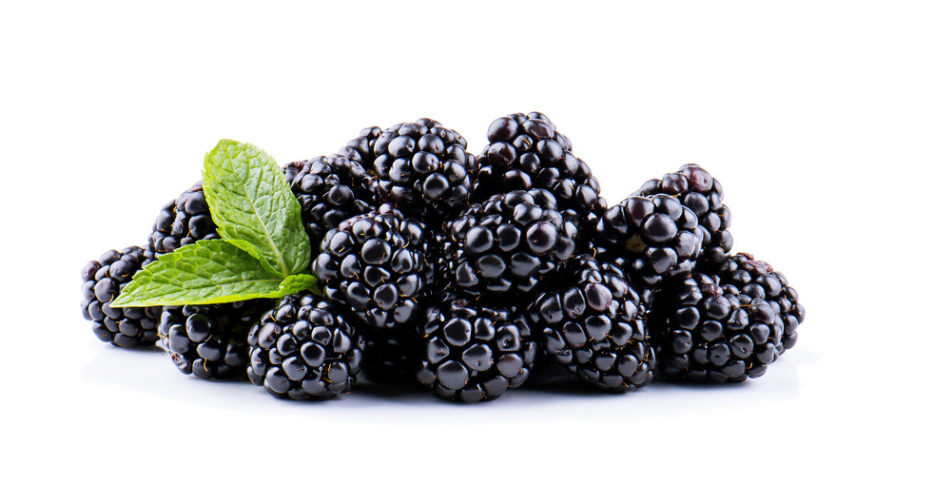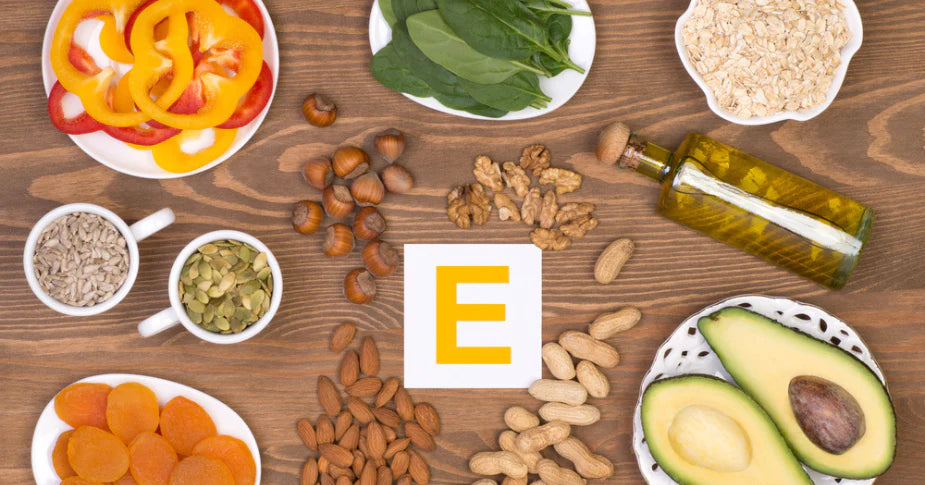Are you looking for ways to boost your intake of vitamin E and reap its incredible health benefits? Don’t switch away from this post. We have compiled a list of the 15 best sources of this powerful antioxidant, which is essential for maintaining healthy skin, eyes, and immune system.

Vitamin E is an important antioxidant that helps protect our cells from damage and plays a role in maintaining good health and preventing chronic disease. By incorporating vitamin E rich-foods into your diet, you can reap the incredible health benefits that this essential nutrient has to offer. So, explore through this blog the good sources of vitamin E so you can start incorporating them into your diet today for a healthy you!
Importance of Vitamin E & Its Sources
Vitamin E is one of the most important nutrients that our bodies need to stay healthy. It's a potent antioxidant that helps protect our cells from the oxidative damage caused by free radicals and gives our skin a fresh and healthier look. Not only does it beneficial for skin health, but it also keeps our internal body organs alive by protecting them from oxidative stress and boosting immunity. To get every single benefit, take it every day by consuming whole foods and food supplements (when necessary).
Read on further to learn about the best sources of vitamin E.
1. Wheat Germ Oil
Wheat germ oil is one of the best sources of vitamin E, with just one tablespoon providing 20 milligrams of this nutrient. Wheat germ oil is also a good source of other important nutrients, like omega-3 fatty acids and antioxidants. However, it's important to note that wheat germ oil is high in calories and should be used in moderation.
2. Almonds
Almonds are a delicious and nutritious snack that is also one of the best sources of vitamin E. Just one ounce of almonds (around 23) provides 7.3 milligrams of vitamin E, which is about half of the daily recommended amount for adults. Almonds are also rich in healthy fats, fiber, and protein, making them an excellent addition to any diet.
3. Sunflower Seeds
Sunflower seeds are a tasty and convenient way to add vitamin E to your diet. Just one ounce (around 23 g) of sunflower seeds provides 10 milligrams of vitamin E. Sunflower seeds are also a good source of healthy fats and protein, which make them a great snack option or addition to salads and other dishes.
4. Avocados
Avocado is a delicious and versatile fruit that is rich in vitamin E. One medium-sized avocado provides about 4.2 milligrams of vitamin E, as well as healthy fats, fiber, and potassium. Avocado is also a great source of other important nutrients, like vitamin K and vitamin C.
5. Hazelnuts

Hazelnuts are another nut that is high in vitamin E. One ounce of hazelnuts (about 21) provides 4.3 milligrams of vitamin E, as well as other important nutrients, like healthy fats and fiber. Hazelnuts are also a great source of protein, making them a filling and nutritious snack.
6. Peanuts
Peanuts are a delicious and nutritious legume that is packed with essential vitamins and minerals. They are also one of the best sources of vitamin E, which is a potent antioxidant that helps protect our cells from damage.
Just one ounce of peanuts provides about 2.4 milligrams of vitamin E, which is about 15% of the daily recommended amount for adults. Peanuts are also a good source of other important nutrients, like protein, healthy fats, and fiber, making them a great addition to any diet.
7. Mango

Mango is a delicious tropical fruit that is also a good source of vitamin E. One medium size mango provides about 3 milligrams of vitamin E, as well as other important vitamins and minerals, like vitamin C and vitamin A. Mango is also low in calories and high in fiber, making it a great choice for anyone looking to maintain a healthy life.
8. Broccoli
Broccoli is a cruciferous vegetable that is high in vitamin E. One cup of cooked broccoli provides you with about 2.2 milligrams of vitamin E, as well as other important nutrients, like vitamin C and fiber. Broccoli is also a low-calorie food, making it a great choice for anyone looking to lose weight or maintain a healthy weight.
9. Turnip Greens
When it comes to leafy greens, spinach, and kale often steal the spotlight, but turnip greens should not be overlooked, especially when it comes to their nutritional value. Turnip greens are a good source of vitamin E, a powerful antioxidant that helps protect our cells from damage and supports our immune system. Just one cup of raw turnip greens provides around 1.6 mg of vitamin E. Plus, turnip greens are also packed with other essential nutrients like vitamin K, calcium, and iron making them a healthy choice for salad.
10. Black Berries

If you're a fan of berries, you'll be delighted to know that blackberries are not only delicious but also loaded with health benefits. These dark and juicy berries are a good source of vitamin E, a potent antioxidant that helps protect our cells from damage and supports our immune system. Just half cup of blackberries provides around 8% (0.8 mg) of the recommended daily intake of vitamin E.
11. Kiwi Fruit
If you're looking for a tasty and nutritious way to up your vitamin E intake, kiwi fruit is the right choice. This small but mighty fruit is packed with essential vitamins and minerals, including vitamin E, which is essential for maintaining healthy skin, eyes, and immune systems. Just one medium kiwi fruit provides 1 mg of vitamin E, making it a fantastic option for those looking to boost their antioxidant intake.
12. Sweet Potato

Sweet potatoes are nutritious and delicious root vegetable that also contains vitamin E. One medium-sized sweet potato provides about 0.6 milligrams of vitamin E, as well as other important vitamins and minerals, like vitamin A and potassium. Sweet potatoes are also a good source of fiber, making them a great addition to any diet.
13. Olives Pickled

Olives are not just a delicious addition to salads, pizzas, and sandwiches - they are also a rich source of vitamin E, a powerful antioxidant that helps protect our cells from damage caused by free radicals. When olives are pickled, they become even more concentrated in vitamin E, making them a fantastic way to boost your intake of this essential nutrient. With that, 5 pieces of olives provide around 0.5 mg of vitamin E.
14. Apricots
Apricots may be small in size, but they pack a powerful nutritional punch, making them a good source of vitamin E. One medium apricot provides around 2% of the recommended daily intake of vitamin E, a potent antioxidant that helps protect our cells from damage and supports our immune system. This delicious fruit is also rich in other essential vitamins and minerals, including vitamin A, potassium, and fiber. These nutrients work together to improve digestion, support healthy skin, and promote healthy vision.
15. Nutrifactor’s E-Cell 400
When it comes to choosing a vitamin E supplement, Nutrifactor's E-Cell 400 stands out as one of the best on the market. With 400 IU of vitamin E per softgel, this premium supplement provides a potent dose of this essential nutrient that supports overall health and well-being. This powerful antioxidant helps protect our cells from damage caused by harmful free radicals, supporting our immune system and reducing the risk of chronic diseases. In addition, E-Cell 400 also helps promote healthy skin, eyes, and brain function, improving cognitive abilities and mental clarity.
Conclusion:
In conclusion, getting enough vitamin E is important for maintaining good health. Fortunately, there are many delicious and nutritious foods that are rich in this essential vitamin.
From nuts & seeds to leafy greens, vegetable oils, and food supplements, the 15 best sources of vitamin E offer a wide variety of options to choose from. By incorporating these foods into your diet, you can increase your vitamin E intake and reap the many health benefits that this powerful antioxidant has to offer.




Leave a comment
This site is protected by hCaptcha and the hCaptcha Privacy Policy and Terms of Service apply.